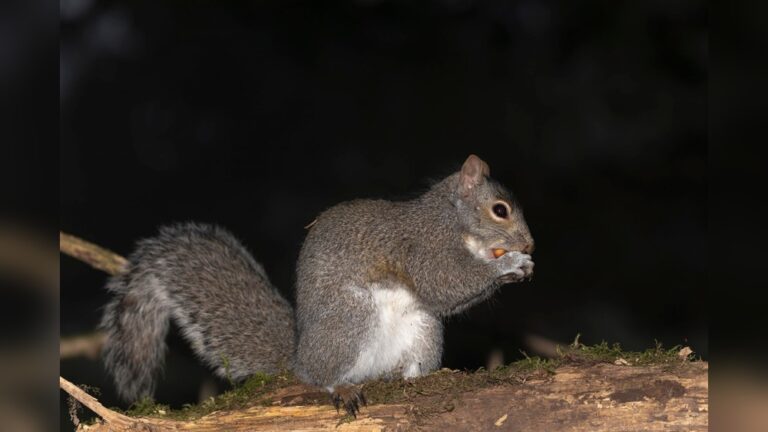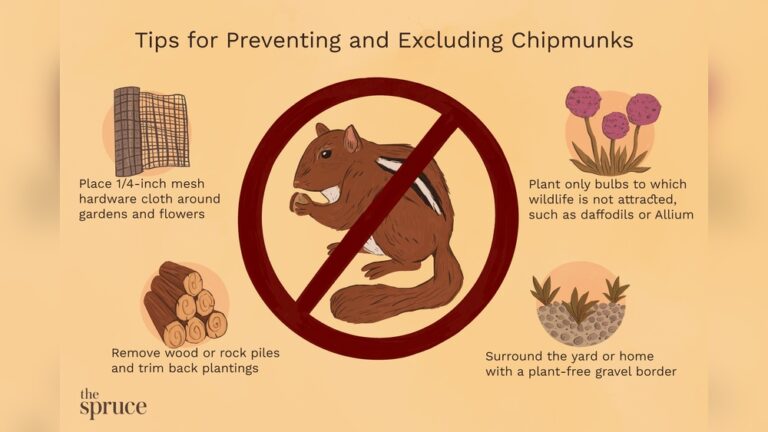Do Guinea Pigs Hibernate: Surprising Facts You Must Know
Have you ever wondered if your furry little friend, the guinea pig, takes a long winter nap like some animals do? You might be curious if they hibernate when it gets cold or if they stay active all year round.
Understanding this can help you care for your pet better and keep them healthy through every season. Keep reading to find out the surprising truth about guinea pigs and hibernation—you’ll discover what signs to watch for and how to create the perfect environment for your companion no matter the weather.

Credit: smallpetselect.com
Guinea Pig Behavior In Cold
Guinea pigs are small animals that come from warm places. Their bodies are not made for very cold weather. Understanding how guinea pigs behave in cold helps owners keep them safe and healthy. These pets do not hibernate, but they do react to cold in certain ways.
Knowing their natural habitat and how they respond to temperature changes is important. It helps create a good environment for them during chilly days or nights.
Natural Habitat And Climate
Guinea pigs originally lived in South America. The Andes mountains and grasslands are their home. These areas have mild temperatures with some cold nights, but not very harsh winters. Guinea pigs adapted to these weather conditions over time.
They prefer stable, moderate climates. Sudden cold or freezing temperatures are not normal for them. This background explains why guinea pigs need warmth and shelter in cold places.
Responses To Temperature Drops
When the temperature drops, guinea pigs try to stay warm. They fluff up their fur to trap heat. They also huddle together if they live with other guinea pigs. This behavior helps them share body warmth.
Guinea pigs may become less active in cold weather. They eat more to keep their energy up. If very cold, they can get sick quickly. Their body does not slow down like animals that hibernate.
Owners must provide warm bedding and protect them from drafts. Heating pads or cozy shelters work well. Watching for signs of cold stress is important to keep guinea pigs healthy.
Hibernation Myths
Guinea pigs do not hibernate like some animals do. They stay awake and active all year. Myths about their hibernation can cause confusion for pet owners.
Common Misconceptions
Many people think guinea pigs hibernate during winter. This is not true. Guinea pigs do not enter a deep sleep to survive cold months. They stay awake and active throughout the year. Their bodies do not slow down like hibernating animals. Instead, they need a warm place to live. Cold temperatures can harm them. Understanding this helps owners care better for their pets.
Differences Between Hibernation And Torpor
Hibernation is a long, deep sleep that some animals use to save energy. It can last weeks or months. The animal’s body temperature drops very low. Heart rate and breathing slow down a lot. Torpor is short and less deep. It lasts a few hours or a day. Animals in torpor can wake up quickly. Guinea pigs do not hibernate or enter torpor. They rely on warmth and food to stay healthy.
Signs Of Torpor In Guinea Pigs
Guinea pigs do not truly hibernate, but they can enter a state called torpor. Torpor is a short-term drop in body temperature and activity. It helps them save energy when it is very cold or food is scarce. Recognizing signs of torpor is important to ensure your pet’s safety. Below are the key signs to watch for in your guinea pig.
Physical Symptoms
Your guinea pig’s body temperature may drop noticeably. They might feel cold to the touch, especially around the ears and paws. Their breathing can slow down and become shallow. You may see their heart rate slow as well. The fur might appear puffed up or fluffed to keep warmth inside. Their eyes could be half-closed or dull, showing low alertness.
Behavioral Changes
Guinea pigs in torpor often stay very still for long periods. They might not respond to noises or movements nearby. Activity levels drop sharply; they stop running or playing. Eating and drinking can decrease or stop altogether. They may hide in one spot and refuse to move much. These changes can last several hours before they warm up again.

Credit: hay-day.co.uk
How To Care For Guinea Pigs In Winter
Winter can be tough for guinea pigs. These small pets do not hibernate. They need extra care to stay healthy in cold months. Proper care helps them stay warm and comfortable. It also keeps their immune system strong. Below are key tips to care for guinea pigs during winter.
Maintaining Warmth
Keep guinea pigs in a warm room away from drafts. Use soft bedding like fleece or hay to insulate their cage. Add extra layers of bedding during cold nights. Avoid placing cages near windows or doors. A small heat source, like a pet-safe heating pad, can help. Check temperature often to ensure it stays between 65-75°F (18-24°C).
Diet Adjustments
Increase fresh vegetables and hay to support energy needs. Fresh water must be available and checked regularly to prevent freezing. Offer vitamin C-rich foods like bell peppers and kale. Avoid sudden diet changes to prevent stomach issues. Provide treats in moderation to boost calories during cold days.
Safe Environment Tips
Keep the cage clean and dry to avoid illness. Remove any wet bedding immediately. Ensure the cage is secure and free from drafts. Provide hiding spots for comfort and stress reduction. Monitor guinea pigs daily for signs of cold or sickness. Regular health checks help catch problems early.
Emergency Situations
Emergency situations with guinea pigs can be scary. These small pets do not hibernate. If they get very cold, their health can quickly drop. Knowing how to act fast can save their life.
Keep calm and watch your guinea pig closely. Early signs of trouble mean you can help sooner. This section explains how to spot hypothermia and what to do next.
Recognizing Hypothermia
Hypothermia means the body gets too cold. Guinea pigs feel weak and slow. Their skin may look pale or bluish. Shivering or stiff muscles are signs. They may stop eating or moving.
Check their ears and feet. Cold touch shows low body heat. The pet might hide more than usual. These signs need quick attention.
First Aid Steps
Move your guinea pig to a warm, dry place. Use a soft towel to wrap them gently. Offer warmth with a heating pad on low. Keep the pad under half the cage only.
Do not give hot water or direct heat. Warmth must be gentle and steady. Watch your pet’s breathing and color. Contact a vet as soon as possible.
Expert Advice And Research
Understanding whether guinea pigs hibernate requires expert advice and scientific research. Experts and studies provide clear facts about guinea pigs’ behavior. This helps pet owners care for their pets properly.
Veterinary Insights
Veterinarians confirm that guinea pigs do not hibernate. Their body temperature stays stable throughout the year. Guinea pigs need a warm and safe environment all the time. Sudden cold can harm their health. Vets recommend keeping guinea pigs indoors during cold months. They also advise monitoring the pet’s behavior for signs of illness, not hibernation.
Scientific Studies On Small Rodents
Research on small rodents shows many species do hibernate. Guinea pigs, though, are different. Studies reveal guinea pigs are active year-round. They rely on food and warmth to stay healthy. Unlike some rodents, guinea pigs do not slow down in winter. Their metabolism does not drop enough to cause hibernation. This research helps explain why guinea pigs need constant care.

Credit: www.guineadad.com
How Smart Pets Lover Can Help You with Do Guinea Pigs Hibernate
Learning From Guinea Pigs’ Winter Behavior
Understanding whether guinea pigs hibernate opens the door to many practical learning moments for pet parents. Since we’ve debunked hibernation myths and explored signs of torpor, it’s clear that guinea pigs don’t truly hibernate but can experience dangerous cold-related states. This insight highlights the importance of attentive winter care and emergency preparedness.
For those of us passionate about responsible pet ownership, like the community at Smart Pets Lover, this knowledge encourages us to monitor our furry friends closely during colder months and recognize early warning signs. Simple steps—such as maintaining a warm environment and knowing when to seek expert advice—can make all the difference.
- Observe your guinea pig’s behavior for lethargy or shivering
- Ensure their habitat is draft-free and cozy
- Keep emergency contact info for a trusted vet handy
By embracing these lessons, pet parents not only protect their companions but also deepen the emotional bond that makes every wag, purr, and chirp tell a story. If you ever feel uncertain, reaching out to local animal care experts can provide the reassurance and guidance needed to keep your guinea pig safe and happy.
Frequently Asked Questions
Do Guinea Pigs Go Into Hibernation?
No, guinea pigs do not hibernate. They remain active throughout the year. Instead, they adapt to colder temperatures by seeking warmth and shelter.
How Do Guinea Pigs Stay Warm In Winter?
Guinea pigs stay warm by burrowing in bedding and huddling together. Providing extra hay and indoor shelter helps maintain their body heat.
Can Low Temperatures Harm Guinea Pigs?
Yes, guinea pigs are sensitive to cold. Temperatures below 50°F (10°C) can cause stress and illness. Always keep their environment warm and dry.
What Signs Show A Guinea Pig Is Cold?
Shivering, lethargy, and puffed-up fur indicate a cold guinea pig. If you notice these signs, increase warmth and check their living conditions immediately.
Conclusion
Guinea pigs do not hibernate like some animals do. They stay awake and active all year. You should keep their home warm in cold weather. Watch them carefully for signs of illness or stress. Giving them good food and shelter helps them stay healthy.
Remember, understanding their needs keeps your pet happy. Guinea pigs need care every day, no matter the season. Keep learning about them to give the best care possible.





